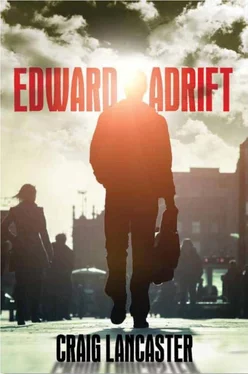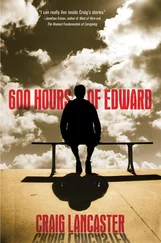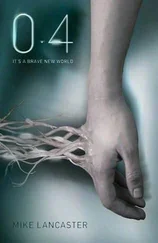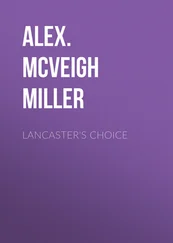“Why do you keep such an old vehicle?” I ask her. “If you had an adaptor, we could be listening to R.E.M. right now.”
“It’s my daddy’s. I don’t have him anymore, because he’s in the ground with my mother. So I have his Suburban. Besides, I like this music.”
This seems to be a plausible answer, so I don’t intend to ask another question. Sheila Renfro looks in the rearview mirror and makes eye contact with me.
“My daddy bought this before he and Mom started thinking about a family,” she says. “Daddy always wanted a big family, with lots of kids. That’s why they built the motel. It was the kind of place where you could raise a family and bring them into a business.”
She stops talking. I want to ask her questions, but I get the sense that she’s not done, so I wait.
“But Mom found out that she couldn’t have kids—”
“But—”
“At least, that’s what the doctors told her. When she got pregnant with me, I guess it surprised everyone. When I was born, though, she nearly bled to death, and the doctors were saying, ‘OK, you got your miracle baby, so now, no more.’”
“You’re a miracle baby!” I say. This makes me indescribably happy.
“I guess. Daddy just couldn’t bear to part with the Suburban, even though it was way more truck than we ever needed. It’s like it reminded him of what he dreamed about but couldn’t do.”
“He said that?”
“Well, no, not like that. But the way he’d talk about things, I’d kind of know. You know, Edward, I wasn’t very popular in school. I didn’t have a lot of friends, or any, sometimes. That’s hard on a kid. My daddy was my best friend.”
Sheila Renfro’s story makes me as sad as it does happy. First, it is a sad story. Even if she was a miracle baby, her mother and father clearly wanted more children. It’s also sad on a personal level. Sheila Renfro had a relationship with her father while he was alive that I’ve been forced to try to find with mine since he’s been dead. I know for a fact that once my parents found out that there was something different about me—I’m speaking here of my developmental disorder and my obsessive-compulsive tendencies—they decided that they didn’t want any more children. This is not conjecture. My father told me this during the height of the “Garth Brooks incident,” when he and I were fighting all the time. He was drunk; he had been drinking all day. He came into my bedroom after one of our battles and said, “You’re such a fucking idiot, boy. I wish you’d never been born so you wouldn’t fuck everything up.”
That devastated me. First, I’m not a fucking idiot. I have a developmental disorder, but I’m not stupid. Second, it upset my mother terribly. It’s the first and only time I ever saw her really stand up to my father. She told him that he was a cruel and awful man and that he should apologize to me. He never did, at least not while he was alive. Four days later he bought the house where I now live, and I was made to leave my parents’ home and begin seeing Dr. Buckley. I was thirty-one years old, so maybe it was time. I think my parents wanted to keep me close to protect me; that’s what Dr. Buckley said when she diagnosed me. But as my condition worsened, my father came to resent me (and I came to dislike him). I was certainly happier on Clark Avenue than I was in my parents’ house, but it was hard to forget what my father said to me in those last days at his house. The truth is, I’ve never forgotten it. From time to time, my mother tried to explain my father’s behavior when he was mean to me, telling me that he was struggling at his job on the county commission and that he was under a lot of stress. I think she gave him too much credit, and to be fair, my mother would agree with that. After my father died, and after she saw the way he controlled me through Jay L. Lamb, she made a break with him. She scarcely talks about him anymore.
I don’t like remembering that story about my father, and I don’t like telling it. I’ve never told anyone except Dr. Buckley, not even Donna Middleton (now Hays). I think I would like to tell Sheila Renfro, however, and this surprises me.
I will have to think about it a while before committing to telling her. Instead, I say something else, because it occurs to me that as Sheila Renfro describes her parents to me, she’s telling me about people I never got a chance to know even though I met both of them in the summer of 1978. That’s odd. It’s like they’re more than an anecdote and less than a robust memory.
“I wish I’d gotten to know your parents,” I say. “I’m sorry they’re in the ground.”
“You’d have liked them,” Sheila Renfro says. “And I think they’d have liked you.”
I’m trying to formulate my next question when I actually hear the words coming out of my mouth.
“How did you find out when your parents died?” I can’t believe I just asked it like that. I was too abrupt, but Sheila Renfro doesn’t seem to mind.
“It happened in the middle of a hot summer day, seven miles from home,” she says. “The sheriff and a deputy got there fast, and one of them came to the motel to get me. I was making dinner for us. Grilled chicken. It was too hot to cook inside, so I was on the patio. He said, ‘Sheila, you’ve got to put that chicken away and come.’ By the time we got there, it was over with. Daddy and Mom were in bags on the side of the road. The guy who hit them was, too. I guess he had a heart attack and lost control of his pickup. He hit their pickup on my daddy’s side at seventy miles per hour. Sheriff said there were no skid marks.”
Sheila tells me all of this matter-of-factly. I am mesmerized.
“How did you find out about your daddy?” she asks me.
“My mother called and woke me up and told me to come to St. Vincent Healthcare right away. He died after I got there.”
“What happened?”
“He had a heart attack in the parking lot of his favorite golf course.”
“I’m sorry.”
I haven’t thought about the actual day that my father died in a long time. It’s been three years, one month, and eighteen days, and most of my effort where my father is concerned has been focused on making peace with every day other than the one on which he died.
“After the doctor told us he’d died, we got to go into the hospital room and see him. It was weird. It was clearly his face, but his hair was mussed, and the qualities that made him who he was—things like his loud voice and his mannerisms—were gone. The only thing that I really thought was odd was how peaceful he looked. He looked much more peaceful than he did the last time I saw him alive.”
“They wouldn’t let me see my daddy,” Sheila Renfro says. “They said it was really bad and that it wouldn’t be something I’d want to see. My mom didn’t have a scratch on her, though—she died because of how shook up her insides were in the wreck. They let me see her. It looked like she was sleeping.”
“What was your mother like?”
“She was a good person. My daddy was my best friend; he had the mind of a child, and so I related to him. My mom didn’t make a lot of time for fun. She was too busy trying to keep things going. I think I’m more like she was.”
It’s interesting to me that Sheila Renfro has thought all of this out. I’ve never considered whether I’m more like my father or my mother. I don’t think I’m like either one of them. That’s been the problem.
— • —
When we leave the interstate at Limon, I ask Sheila Renfro if we can turn around and go find the place where I ran into the snowplow. I would like to see it, now that the sun is out and it’s not snowing. Also, it will give me a chance to correct this mileage discrepancy.
Читать дальше












![Edward Ellis - Adrift on the Pacific - A Boys [sic] Story of the Sea and its Perils](/books/753342/edward-ellis-adrift-on-the-pacific-a-boys-sic-s-thumb.webp)